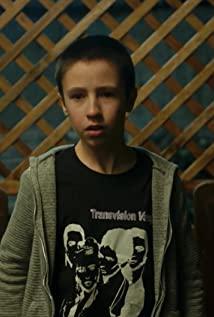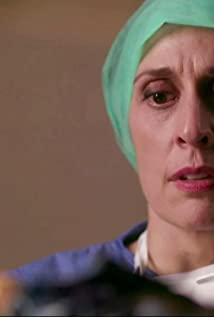When I just watched it, I thought that the heroine can remember the memory before death, and the fact that the hero does not know the heroine is very buggy, but then I thought about it carefully, after all, the director of the invisible guest, it can't be simple The single male protagonist told the young male protagonist not to disturb the female protagonist so that one change would solve the problem, so there is no need to leave it blank. Leave blank means a broad space for thinking, and in the end, will the director of the bug that the heroine have memory and the bug that the hero has no memory of the heroine know? The fun of watching suspense movies is here, to find what the director wants to express in the blank part. So I write down the results I envisioned.
First of all, according to the film, the launch setting is that only people who have encountered TV and changed the past can remember the memory of the time and space before the change.
So when Nick changes the timeline, the heroine will not keep her memory, so the last time and space must be that Nick changed the timeline and saved the heroine first, and then the heroine changed the past.
The analysis from God's perspective is as follows, divided into time periods and represented by letters. A. The heroine moves and discovers the TV, communicates with the little male protagonist, and changes the past. B. The heroine wakes up, the male protagonist lives, and the female protagonist's life changes. With myself, the heroine couldn't let go of her daughter and jumped off the building to her death C. The hero contacted the little hero through TV and told the little hero to live according to the original life trajectory, but on the day of the thunderstorm, if the heroine looked for her daughter, she must help her before she jumped off the building D The male protagonist wakes up and finds that he has helped the female protagonist, and the female protagonist changes the past through TV (at this time the female protagonist does not remember that she has jumped off the building, just like when the male protagonist did not know that he was killed, just through the newspaper cut by the female protagonist Knowing) E, the heroine woke up and saw that her husband and daughter were all at ease, and the TV moved with the little boy. For the heroine, it was the same as the ending scene, but in this case, the hero is I know the heroine, because I was very impressed with the heroine when I was a child. I met the heroine twice. The second time the heroine told him not to go to the station to look for himself. I think he should not forget such an important person when he grows up (It’s okay to just forget about the ending. But I think it would be great if the director just shot each other with a smile, and had to superfluous and let the male lead say that I know you), so it is presumed that he will be curious when he is growing up. And stay on the sidelines, maybe fall into a crush again, and in order to get rid of this emotion and change the past again, tell the little boy to turn on the TV on the day of the thunderstorm to save himself. Ending: There is no female protagonist in the process of the male protagonist's life, only the future self saves himself and tells himself to save himself on the day of the thunderstorm. The heroine has not changed in this change, she still has the same memory of E, that is, she has only experienced the memory of two time periods of DE. This explains that in the end the heroine retains the memory of the TV and the loss of the child (but in fact this memory is not the AB segment shown in the movie at the beginning, but the DE segment after being changed by the hero), and also explains the heroine. Why don't you know the heroine.
Thinking about it this way, the ending has changed from a happy comedy ending to a tragedy, because even if the male protagonist touches the female protagonist, he cannot flash back the memory of the current time and space.
Let’s analyze this point in detail. According to the description in Part B of the movie, when the heroine met David, she was only at the beach, and there was no David. But in fact, in this time and space, the two of them had a craniotomy, and the heroine should flash back to this place. Partial memory, so I speculate that the setting of memory flashback is
After skin-to-skin contact, if both parties have a common experience, the person who changed the history will flash back to the common experience of the two of them in the current time and space. (And David was not awake when he opened his skull, so after the female protagonist touched it, the two had no common experience, so they could not flash back)
Then the current time and space of the male protagonist of the ending has not had any intersection with the female protagonist, so there is no flashback memory. This became the tragic end, the heroine lost the warm man.
Revised April 1st
Thank you Xinyan for your comment. The above speculation is problematic in the last part. If the male protagonist in the ending modifies the history, he will retain E's memory after he wakes up, so he can only introduce a third party to modify it, that is, the ending of E is the male protagonist. Tell the little male protagonist to let his mother touch the TV on a rainy night 25 years later to save him.
In this way, the ending will be that the male protagonist loses his memory, and only the mother retains the story that she was asked by her son to touch the TV to contact the young son not to provoke the neighbors (but she should also be confused, because she has not experienced her son's car accident, and also Never experienced the gold watch incident)
This can be explained. . But there is no mother's hint in the film, and it feels a bit forced. .
View more about Mirage reviews











